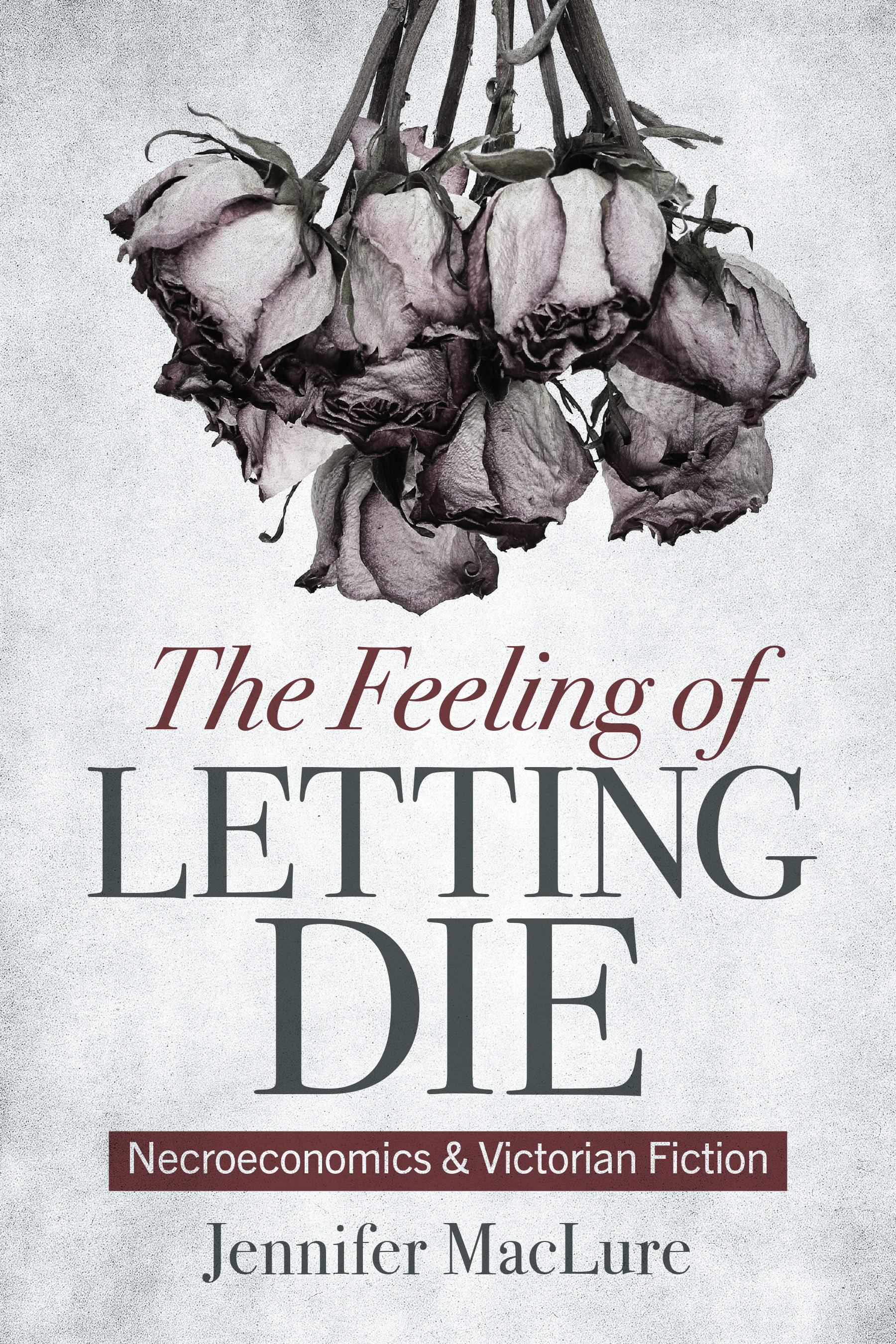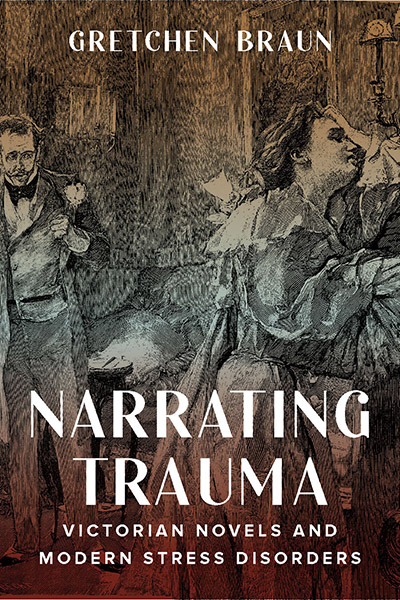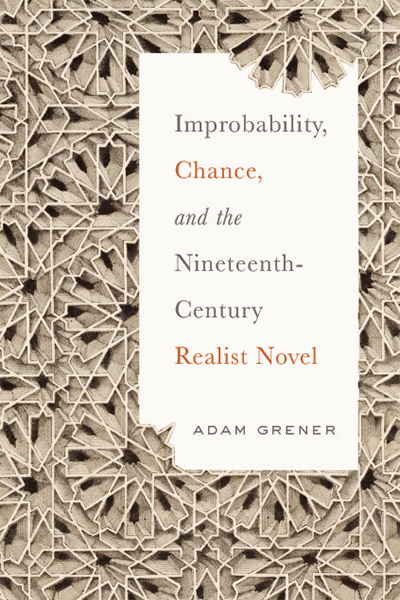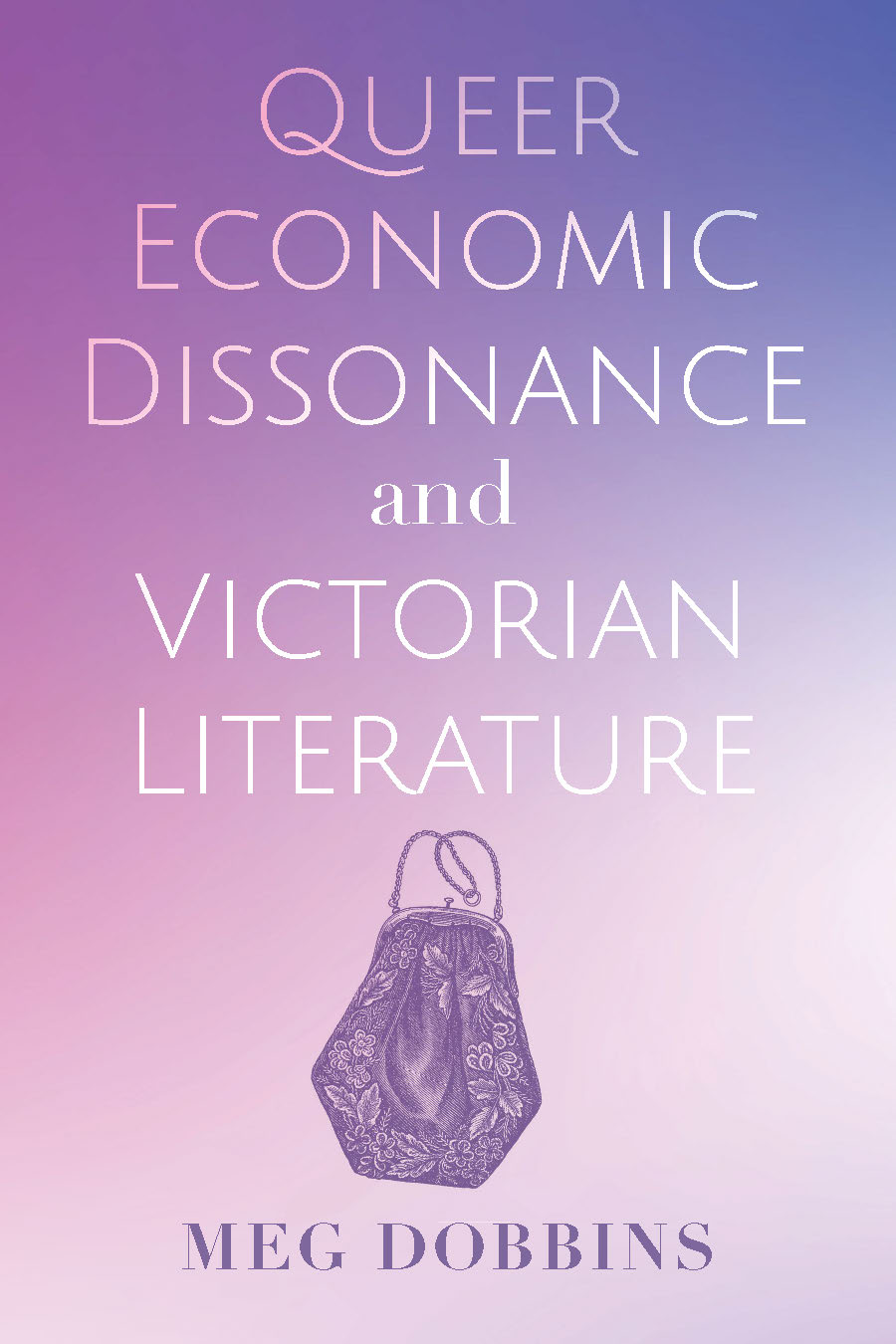Winner, 2023 North American Victorian Studies Association First Book Prize
The Feeling of Letting Die reviewed in SEL Studies in English Literature 1500-1900
Listen to Jennifer MacLure interviewed on the Deerfield Public Library Podcast
“MacLure’s persuasive and deeply felt account of the necroeconomic underpinnings in Victorian literature is an important contribution with wide-reaching interventions....Even beyond the classroom, MacLure’s attentive readings are vital as we attempt to understand our current moment.” —Alexia Mandla Ainsworth, British Association of Victorian Studies
“MacLure effectively keeps each text in view, able to span almost the entire nineteenth century and authors of drastically different economic values with a clear, cohesive vision. ... this book will certainly contribute to further avenues of scholarship on necroeconomic power in Victorian fiction and is well worth study.” —Rebecca Easler, Dickens Quarterly
“With The Feeling of Letting Die, Jennifer MacLure makes an important contribution to the study and investigation of a topic of a wide epistemic scope. … this is a very well organised monograph that delves, with critical intelligence and methodological consistency, into the economic effects of change–effects that are usually overlooked in Victorian studies.” —Michela Marroni, RSV (Rivista di Studi Vittoriani)
“This is a thoughtful, scholarly and convincing study, based on close readings of the novels and careful regard of the critical readings of others.” —A. G. van den Broek, George Eliot Review
“Nuanced and convincing ... This book profoundly reminds us how important it is to continue examining feelings and their interaction with the material conditions from which they emerge.” —Jolene Zigarovich, ABO: Interactive Journal for Women in the Arts, 1640-1830
In The Feeling of Letting Die, Jennifer MacLure explores how Victorian novels depict the feelings that both fuel and are produced by an economic system that lets some people die in service of the free market. MacLure argues that Victorian authors present capitalism’s death function as a sticking point, a series of contradictions, and a problem to solve as characters grapple with systems that allow, demand, and cause the deaths of their less fortunate fellows.
Utilizing Achille Mbembe’s theorization of necropolitics, MacLure uses the term “necroeconomics,” positioning Victorian authors—even those who were deeply committed to liberal capitalism—as hyperaware of capitalism’s death function. Examining both canonical and lesser-known works by Elizabeth Gaskell, Harriet Martineau, Charles Dickens, William Morris, and George Eliot, The Feeling of Letting Die shows capitalism as not straightforwardly imposed via economic policy but instead as a system functioning through the emotions and desires of the human beings who enact it. In doing so, MacLure reveals how emotion functions as both the legitimating epistemic mode of capitalism and its most salient threat.
Jennifer MacLure is Assistant Professor of English at Kent State University.
Contents
Acknowledgments
Introduction Death by Invisible Hand
Chapter 1 How to Let Die: Malthusian Medicine in Martineau and Marcus
Chapter 2 Pathoeconomics and the Radical Potential of Feeling in Gaskell’s Industrial Novels
Chapter 3 Letting Die Slowly: Necroeconomic Pleasure in Dickens’s Bleak House
Chapter 4 Unfeeling Capitalism, Future and Past: Middlemarch, Felix Holt, and News from Nowhere
Afterword Our Necroeconomic Present
Works Cited
Index
“The Feeling of Letting Die is an important addition to the growing body of work on affect, biopolitics, and community in Victorian Studies, and is particularly valuable for its fresh, carefully modulated reading of Gaskell’s industrial novels.” —Tristan Burke, The Gaskell Journal
“In our pandemic present, when marketized states have determined that the premature death of millions is the price of doing business, this book couldn’t be more relevant. MacLure’s analysis of biopolitics highlights the role of affect in capitalism’s cultural history to explain the acceptance (and promotion) of preventable death.” —Emily Steinlight, author of Populating the Novel: Literary Form and the Politics of Surplus Life
“Intelligent, well-researched, and situated in the wake of essential critical works of the last decade, The Feeling of Letting Die leaves us with the generally unacknowledged but eminently believable conclusion that the Victorians were as Malthusian as Scrooge before his transformation.” —Audrey Jaffe, author of The Affective Life of the Average Man: The Victorian Novel and the Stock-Market Graph





